- Central Asian countries are moving away from Russia due to the Ukraine war.
- China has already invested billions of dollars in Eurasia for the creation of its New Silk Road project.
- Central Asian countries see in China an economic and security guarantee that Russia no longer provides.
It is undeniable that China has become one of the most powerful countries today and consequently one of the most influential countries in Asia, on par with Russia.
Chinese economic and military growth has given the country the possibility to invest in its own interests in the region and, as a consequence of the Russian war in Ukraine, Putin has weakened Russia’s influence in Central Asia, opening the way even further for Xi Jinping.
With a new balance of power taking shape, we analyze how China has taken Russia’s place in relations with Central Asian countries and what are the most relevant geopolitical changes that this new configuration will result in.
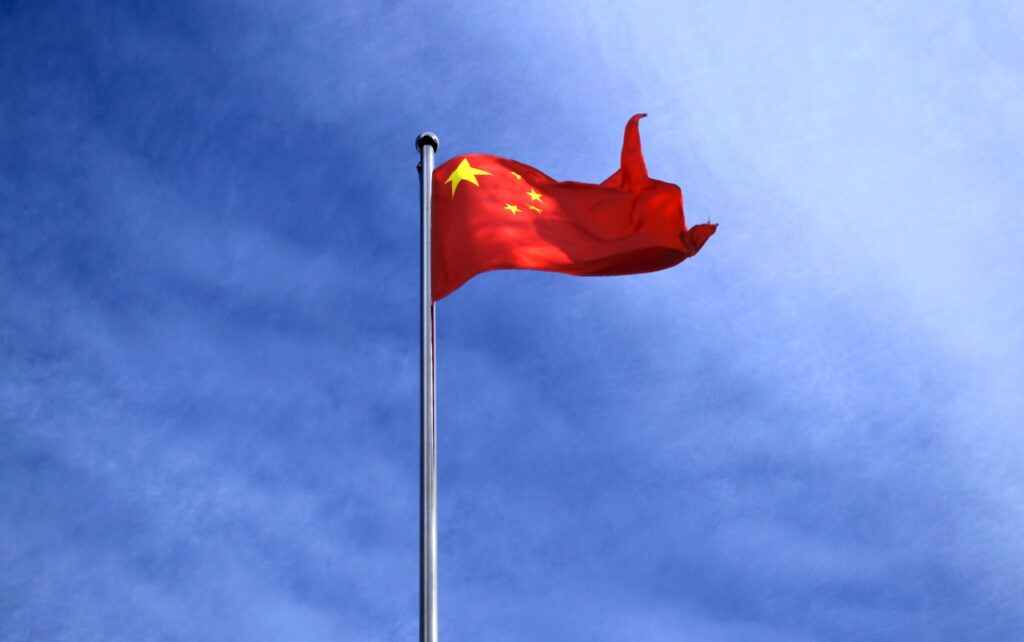
How the War in Ukraine Is Reducing Russian Influence in the Former Soviet Republics of Central Asia
To understand the context of this phenomenon, it is necessary to know that during the existence of the Union of Soviet Socialist Republics (USSR), the current Ukrainian territory responded to the government of Moscow and was known as Kievan Rus.
However, only in 1991 with the collapse of the then USSR, Ukraine became an independent country, but maintaining strong relations with present-day Russia. This close relationship implied to Russia that the country was still part of its sphere of influence, as were most Central Asian countries.
However, over the years, the young Ukraine began its rapprochement with the European bloc, which clearly bothered Russia, which pressured the country so that an association agreement between Ukraine and the European Union was not signed, causing the then President Ukrainian retreat.
Not satisfied, the Russian government sent armed groups to the main institutions of the Crimean Peninsula, calling an independence referendum which, after the internationally disputed result, annexed the territory to Russia again.
Likewise, Russia invaded Ukrainian territory in 2022, belittling its sovereignty and inciting separatist groups that are allegedly the reason for the occupation.
However, it is evident that Putin considers Ukraine to be part of Russia, referring to the period of the Soviet Union, in search of enjoying the natural and geopolitical benefits as the holder of this region.
As a result, Central Asian countries, also former members of the late Soviet Union, fear that Putin can use the same justification to invade their territories if he wants to.
Therefore, this fear is causing these Central Asian countries to politically distance themselves from Russia – with the example of Kazakhstan – and seek security, trade agreements, infrastructure agreements in another great power today: China.
CSTO will survive a Russian defeat in Ukraine
The Collective Security Treaty Organization is an intergovernmental military alliance, with the objective of “strengthening international and regional peace, security and stability, collective protection of the independence, territorial integrity and sovereignty of member states, to which member states give priority to political circles”.
The CSTO is part of a system of alliances called the Commonwealth of Independent States (CIS), which is responsible for largely maintaining Russia’s influence in Central Asia to this day. The CIS was founded with the aim of establishing an economic and defense system among the former republics of the Soviet Union.
Due to this alliance, Armenia requested Russian help in its territory on account of Azerbaijani invasions seeking control of the Nagorno-Karabakh region. However, Moscow refused to help as its military forces were concentrated in Ukraine.
Consequently, the already weakened organization appears to see its demise imminent. Armenia no longer trusts Russia as the guarantor of its security, requested its withdrawal from the agreement and appealed for US help in the conflict.
Tajikistan and Kyrgyzstan are also in conflict on their borders and are not receiving any support or mediation from Moscow. Therefore, if Russia does not win the war in Ukraine and regain its morale in the region, it is very likely that the CSTO will not survive as member countries are not reaping effective benefits from the organization.
China taking over Russia’s space in Central Asia
Russia’s influence in Central Asia has clearly been dwindling week by week during Putin’s war in Ukraine. The Shanghai Cooperation Organization summit held in Uzbekistan in September 2022 was a demonstration of Russia’s diminishing position in Central Asia due to the invasion.
In recent years, China and Russia have shared their influence in the region. While Beijing performed economic leadership in the region, Moscow was left with regional security issues. While Russia remains a major security player in Central Asia, its influence is waning.
With its focus on war, Russia has left a security vacuum in Central Asia and China is slowly and cautiously filling that position. Despite its armed forces being able to dominate the security of Central Asian countries, Beijing enjoys its anti-Western competition along with Moscow, so it remains cautious for political reasons.
Despite this, the country has increasingly inserted itself into the Central Asian region both economically and in security matters. In 2021, the Chinese carried out more than 48 billion dollars in bilateral trade with the five Central Asian countries: Tajikistan, Turkmenistan, Uzbekistan, Kyrgyzstan and Kazakhstan.
Furthermore, the Chinese are gradually becoming bold in some projects.
Ethos that are not compatible with Russian interests. An example of this is the great rail agreement that China signed with Kyrgyzstan and Uzbekistan, on a route that bypasses Russia, which is internationally isolated and suffering economic sanctions.
The rail route could extend south through Turkmenistan, through Iran and finally through Turkey, the gateway to Europe. This route will shorten the route from China to Europe by 900 kilometers and would cut travel time by 7-8 days.
Another bold Chinese stance was President Xi Jinping’s announced commitment to “resolutely support Kazakhstan in defending its independence, sovereignty and territorial integrity.” A clear warning to President Putin not to interfere in Central Asia, where both countries operate geopolitically.
China has kept its foreign relations on a fine line. While Xi Jinping regards Putin as an ally against the US and NATO, he is apparently unwilling to stray too far from Washington or the European Union to the point of suffering economic reprisals for “aiding the Russian war”.
But, in contrast, Xi is unwilling to move too abruptly away from Russia. In addition to being an ally, Putin declared his support for China on the Taiwanese issue. Pleased with the support, Xi praised Russia for adhering to the One China Principle and emphasizing that Taiwan is part of China.
Finally, it is observed that the Russians and Chinese still have mutual interests in Central Asia, but their leaders can trigger a regional influence clash, due to conflicting economic and security interests.
With Putin’s power and influence gradually diminishing due to his invasion of Ukraine, China becomes the most powerful regional actor and is increasingly willing and able to put its regional interests above its relationship with the giant, but decaying Russia.
How China is using the Shanghai Cooperation Organization as a tool to increase its influence in Asia
The Shanghai Cooperation Organization is a political, economic and military organization in Eurasia, and its objective is security cooperation – in particular, on terrorism, separatism and extremism – but also on economic and cultural cooperation.
China uses the SCO as a means of ensuring security in its neighborhood and protecting its economic interests across Eurasia, where it has invested billions of dollars in infrastructure as part of its Belt and Road Initiative.
The Belt and Road Initiative is considered a centerpiece of Chinese Supreme Leader Xi Jinping’s foreign policy. The initiative forms a core component of Xi’s “Primary Country Diplomacy” strategy, which calls for China to assume a greater leadership role in global affairs in keeping with its growing power and status.
This is a global infrastructure development strategy adopted by the Chinese government to invest in nearly 150 countries and international organizations. As of August 2022, 149 countries were listed as having applied to participate in the project. Therefore, the Chinese plan to increase its influence in the Asian region has paid off.
The future trend of the Chinese-Russian alliance and influence in Central Asia
Due to Russia’s never-ending war in Ukraine, the international configuration is unexpectedly changing faster than we could have imagined.
The main trend is that, with the fear of a possible Russian invasion of their territories, Central Asian countries will distance themselves politically from Russia and seek refuge in agreements with China, which is increasingly powerful in the region.
The CSTO, on the other hand, seems to have its days numbered since the organization’s objective would be a military collaboration, as if it were Eastern NATO. However, if the alliance is not fulfilling its basic objectives, there is no reason for the alliance to exist, and the members, aware of this, are asking to leave the bloc so that they can have support from other states.
The corrosion of Russia is opening up more and more space to act in its zone of influence and so China is doing, however, China will not leave Russia just yet. China denounces American defense alliances and sanctions against Russia, because it fears that the same weapons will be used to contain its influence in Asia or to punish a possible attack on Taiwan.
The country, while avoiding Western sanctions, takes advantage of Russia’s isolation to buy oil and gas at lower prices and still manages to increase its influence in Central Asia.
Finally, China is always cautious with its interests and the tendency is that with the victory or defeat of Russia in Ukraine, the country will benefit from it, as it maintains its foreign relations millimetrically balanced.
It is undeniable that China has become one of the countries most powerful today and consequently one of the most influential countries in Asia, equivalent to Russia.
Chinese economic and military growth has given the country the possibility to invest in its own interests in the region and, as a result of the Russian war in Ukraine, Putin has weakened Russia’s influence in Central Asia, opening the way even further for Xi Jinping.
With a new balance of power taking shape, we analyze how China has taken the place of Russia in relations with Central Asian countries and what are the most relevant geopolitical changes that this new configuration will result in.
How the War in Ukraine Is Reducing Russian Influence in the Former Soviet Republics of Central Asia
To understand the context of this phenomenon, it is necessary to know that during the existence of the Union of Soviet Socialist Republics (USSR), the current Ukrainian territory responded to the government of Moscow and was known as the Ukrainian Soviet Socialist Republic.
However, only in 1991 with the collapse of the then USSR, Ukraine became an independent country, but maintaining strong relations with present-day Russia. This close relationship implied to Russia that the country was still part of its sphere of influence, as were most Central Asian countries.
However, over the years, the young Ukraine began its rapprochement with the European bloc, which clearly bothered Russia, which pressured the country so that an association agreement between Ukraine and the European Union was not signed, causing the then President Ukrainian retreat.
Not satisfied, the Russian government sent armed groups to the main institutions of the Crimean Peninsula, calling an independence referendum which, after the internationally disputed result, annexed the territory to Russia again.
Likewise, Russia invaded Ukrainian territory in 2022, belittling its sovereignty and inciting separatist groups that are allegedly the reason for the occupation.
However, it is evident that Putin considers Ukraine to be part of Russia, referring to the period of the Soviet Union, in search of enjoying the natural and geopolitical benefits as the holder of this region.
As a result, Central Asian countries, also former members of the late Soviet Union, fear that Putin can use the same justification to invade their territories if he wants to.
Therefore, this fear is causing these Central Asian countries to politically distance themselves from Russia – with the example of Kazakhstan – and seek security, trade agreements, infrastructure agreements in another great power today: China.
CSTO will survive a Russian defeat in Ukraine
The Collective Security Treaty Organization is an intergovernmental military alliance, with the objective of “strengthening international and regional peace, security and stability, collective protection of the independence, territorial integrity and sovereignty of member states, to which member states give priority to political circles”.
The CSTO is part of a system of alliances called the Commonwealth of Independent States (CIS), which is responsible for largely maintaining Russia’s influence in Central Asia to this day. The CIS was founded with the aim of establishing an economic and defense system among the former republics of the Soviet Union.
Due to this alliance, Armenia requested Russian help in its territory on account of Azerbaijani invasions seeking control of the Nagorno-Karabakh region. However, Moscow refused to help as much of its military forces were concentrated and engaged in combat in Ukraine.
Consequently, the already weakened organization appears to see its demise imminent. Armenia no longer trusts Russia as the guarantor of its security, requested its withdrawal from the agreement and appealed for US help in the conflict.
Tajikistan and Kyrgyzstan are also in conflict on their borders and are not receiving any military support or mediation from Moscow. Therefore, if Russia does not win the war in Ukraine and regain its position of influence in the region, it is very likely that the CSTO will not survive as member countries are not benefiting effectively from the organization.
China taking over Russia’s space in Central Asia
Russia’s influence in Central Asia has clearly waned with each passing week of Putin’s war in Ukraine. This loss is due both to the fear of Central Asian countries of being the next in line for the Russian invasion, and to the demonstration that Russian military forces are much weaker and incompetent than imagined.
The Shanghai Cooperation Organization summit held in Uzbekistan in September 2022 was a demonstration of Russia’s diminishing position in Central Asia due to the invasion.
In recent years, China and Russia have shared their influence in the region. While Beijing has executed economic leadership in the region, Moscow was left with regional security issues. While Russia remains a major security player in Central Asia, its influence is waning.
With its focus on war, Russia has left a security vacuum in Central Asia and China is slowly and cautiously filling that position. Despite its armed forces being able to dominate the security of Central Asian countries, Beijing enjoys its competition against the West along with Moscow, so it remains cautious for political and economic reasons as Russia is a major supplier of energy (natural gas ) and mineral resources for China.
Despite this, the country has increasingly inserted itself into the Central Asian region both economically and in security matters. In 2021, the Chinese carried out more than 48 billion dollars in bilateral trade with the five Central Asian countries: Tajikistan, Turkmenistan, Uzbekistan, Kyrgyzstan and Kazakhstan.
In addition, the Chinese are gradually becoming bold in some projects that are not compatible with Russian interests. An example of this is the great rail agreement that China signed with Kyrgyzstan and Uzbekistan, on a route that bypasses Russia, which is internationally isolated and suffering economic sanctions.
The rail route could extend south through Turkmenistan, through Iran and finally through Turkey, the gateway to Europe. This route will shorten the route from China to Europe by 900 kilometers and would cut travel time by 7-8 days.
Another bold Chinese stance was President Xi Jinping’s announced commitment to “resolutely support Kazakhstan in defending its independence, sovereignty and territorial integrity.” A clear warning to President Putin not to interfere in Central Asia, where both countries operate geopolitically.
China has kept its foreign relations on a fine line. While Xi Jinping regards Putin as an ally against the US and NATO, he is apparently unwilling to stray too far from Washington or the European Union to the point of suffering economic reprisals for “aiding the Russian war”.
But, in contrast, Xi is unwilling to move too abruptly away from Russia. In addition to being an ally, Putin declared his support for China on the Taiwanese issue. Pleased with the support, Xi praised Russia for adhering to the One China Principle and emphasizing that Taiwan is part of China.
Finally, it is observed that the Russians and Chinese still have mutual interests in Central Asia, but their leaders can trigger a regional influence clash, due to conflicting economic and security interests.
With Putin’s power and influence gradually diminishing due to his invasion of Ukraine, China becomes the most powerful regional actor and is increasingly willing and able to put its regional interests above its relationship with the giant, but decaying Russia.
How China is using the Shanghai Cooperation Organization as a tool to increase its influence in Asia
The Shanghai Cooperation Organization is a political, economic and military organization in Eurasia, and its objective is security cooperation – in particular, on terrorism, separatism and extremism – but also on economic and cultural cooperation.
China uses the SCO as a means of ensuring security in its neighborhood and protecting its economic interests across Eurasia, where it has invested billions of dollars in infrastructure as part of its Belt and Road Initiative.
The Belt and Road Initiative is considered a centerpiece of Chinese Supreme Leader Xi Jinping’s foreign policy. The initiative forms a core component of Xi’s “Primary Country Diplomacy” strategy, which calls for China to assume a greater leadership role in global affairs in keeping with its growing power and status.
This is a global infrastructure development strategy adopted by the Chinese government to invest in nearly 150 countries and international organizations. As of August 2022, 149 countries were listed as having applied to participate in the project. Therefore, the Chinese plan to increase its influence in the Asian region has paid off.
The Future Trend of the Chino-Russian Alliance and Influence in Central Asia
Due to Russia’s interminable war in Ukraine, the international configuration is changing at an extremely fast pace not seen since the fall of the Berlin Wall and the end of the Soviet Union in the late 1980s and early 1990s.
The main trend is that the fear of a possible Russian invasion of their territories makes Central Asian countries politically distance themselves from Russia and seek refuge in agreements with China, which is increasingly powerful in the region.
CSTO, on the other hand, seems to have its days numbered since the organization’s objective would be to collaborate military ration, as if it were eastern NATO. However, if the alliance is not fulfilling its basic objectives, there is no reason for the alliance to exist, and the members, aware of this, are asking to leave the bloc so that they can have support from other states, both China and even the United States — as in Armenian case.
The erosion of Russia’s power is opening more and more space for China to act in the Russian zone of influence. However, China will not abandon Moscow and will continue to denounce American defense alliances and sanctions against Russia, because it fears that the same weapons will be used to contain its influence in Asia or to punish a possible attack on Taiwan.
At the same time Beijing wants to avoid Western sanctions, it is taking advantage of Russia’s isolation to buy oil and gas at lower prices while increasing its influence in Central Asia.
Finally, China is always cautious with its interests and the tendency is that with the victory or defeat of Russia in Ukraine, the country will benefit from it, as it maintains its foreign relations millimetrically balanced.
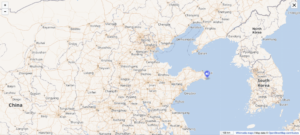

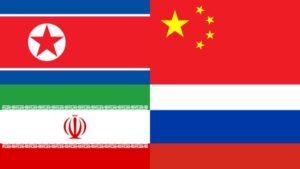
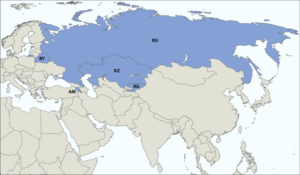


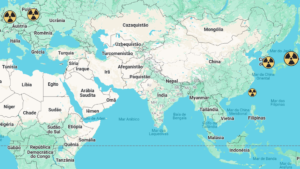

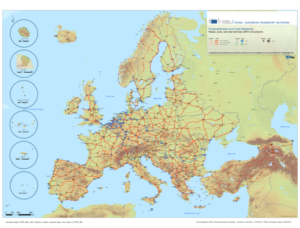
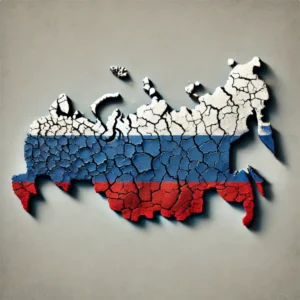
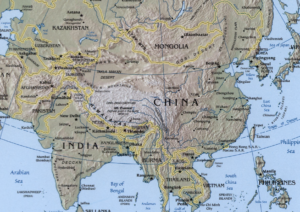







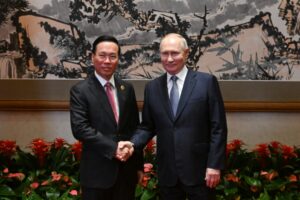
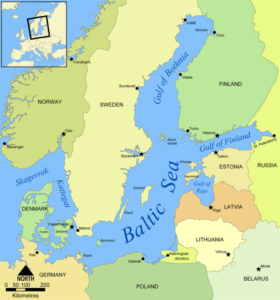
[…] mainly with the European Union and countries of the Indo Pacific, which would directly affect Russia and China respectively, although this influence is not mentioned in the […]
[…] by chance, the expression “Chinese growth rate” began to be used internationally. However, since the atypical years of the COVID-19 pandemic […]
[…] 1927 and 1949, China experienced a civil war between the Chinese Communist Party (CCP), led by Mao Zedong, and the […]
[…] Turkic peoples to disassociate themselves from Russia to avoid a negative image and avoid excessive Chinese influence. Turkish leaders do not want to be seen as Russia’s close allies, as none of them supported […]
[…] 2018: Key topics discussed included China’s growing influence, the transatlantic relationship amid tensions between the US and Europe, the threat of terrorism, […]
[…] to move beyond its traditional role as a provider of low-cost, low-capability weapons to possibly claim the niche Russia currently occupies for large, more complex weapons […]
[…] country as an influential and essential actor in the security of the region and in the objective of containing the influence of China in the […]
[…] For Washington, this rapprochement offers an opportunity to strengthen its presence in the Caucasus region, which has a crucial strategic location between Europe and Asia, as well as substantial energy resources. The United States can thus balance power in the region and challenge the influence traditionally exercised by Russia and recently by China. […]